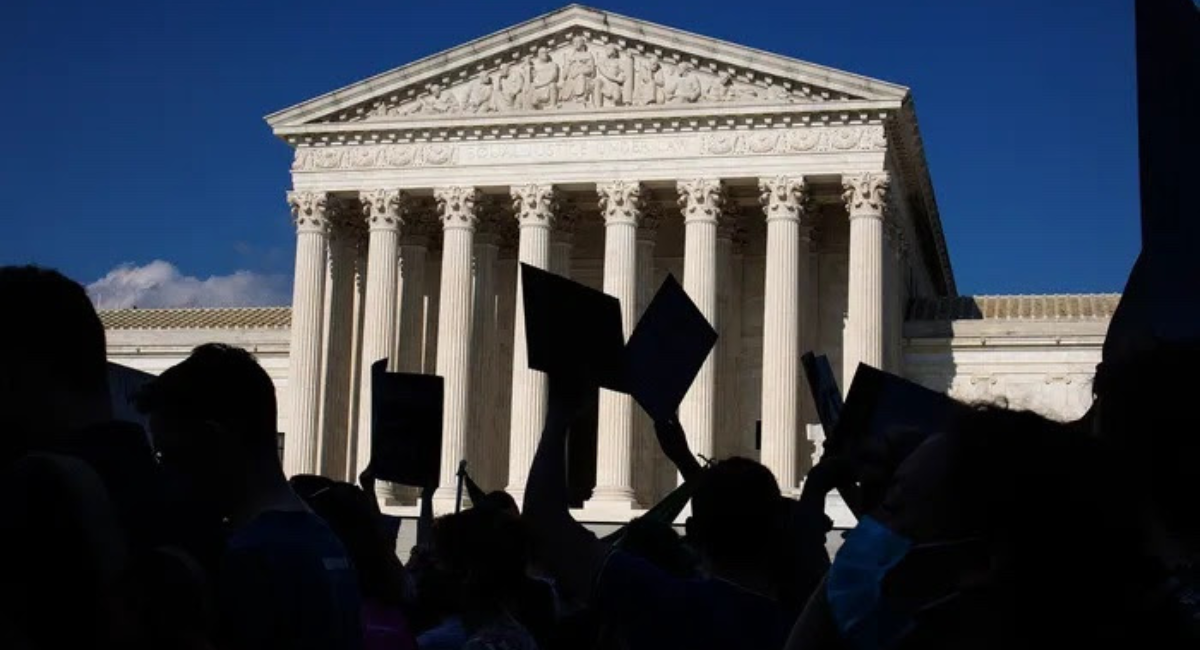The Supreme Court’s decision in late June overturning 45 years of precedent that allowed for the consideration of race in college admissions is a big setback for all communities of color.
That is the consensus among advocates of Affirmative Action who say the ruling will widen already glaring inequalities.
“As we’ve seen with this term’s decisions on Affirmative Action and student debt relief, the Supreme Court is more interested in making higher education attainable for primarily the wealthy and well-connected,” says Rep. Judy Chu (D-CA).
The most immediate effect will be decreased minority student enrollment at the University of North Carolina and Harvard, the two universities involved in the ruling, unless both schools figure out other ways to diversify their student body.
Chu, who also chairs the Congressional Asian Pacific American Caucus, told reporters at an EMS press briefing last week she was “deeply distressed” by the high court’s ruling.
“Our Asian American, Native Hawaiian, and Pacific Islander communities are not a monolith. AANHPI students from low-income, first-generation, immigrant, refugee, or Indigenous communities are already systematically denied equal opportunity in education,” she noted, adding they will encounter even more hurdles to acceptance at higher education institutions as a result of the decision.
A ‘devastating opinion’
The suits, brought by the group Students for Fair Admissions – led by veteran conservative activist Howard Blum – claimed the universities’ admissions policies discriminated against Asian applicants. Notably, no students testified on behalf of Blum’s group in either suit.
Jin Hee Lee, a veteran civil rights attorney with the Legal Defense Fund (LDF), called the ruling “a devastating opinion” that struck a blow to years of efforts to advance equal opportunity in a society that has tremendous inequalities.
“Very disappointing,” said John C. Yang, President and Executive Director of Asian Americans Advancing Justice (AAJC), noting that despite the plaintiff’s claims, a majority (69%) of Asian Americans support Affirmative Action.
That narrative needs to be corrected, according to Yang, who acknowledged that while consideration of race in college admissions is now no longer legal, the effort to ensure diversity in higher education will continue. “This is not the end of the fight,” he said.
The Affirmative Action ruling continues the court’s lurch rightward, coming as it does on the heels of several controversial decisions, most notably the overturning of Roe v. Wade last year and more recently the ending of President Biden’s student loan debt forgiveness program and tighter limits on the federal government’s authority to police water pollution.
SCOTUS also ruled in favor of a web designer who argued her faith prevents her from serving LGBTQ+ clients, which critics say could open the floodgates to wider discrimination in public spaces.
Widening inequality
“Ignoring race will not equalize a society that is deeply unequal,” said Francisca Fajana, Director of Racial Justice Strategy at the civil rights group Latino Justice. “This court disregards the reality that race and class are intersected.”
Fajana noted that elite colleges are the pathway to greater opportunity and now fewer minority students will see them. Only 21% of Latinos hold Bachelors’ degrees compared to 44% of their non-Hispanic counterparts. Just 15.4% of Native Americans graduated from college in 2021 compared to the national rate of 33%.
Chavis Jones is with the Lawyers’ Committee for Civil Rights Under Law. He echoed Yang’s call to keep fighting for educational opportunities. He says the Supreme Court found Harvard’s admission policies violated the Constitution’s Equal Protection Clause but that’s not the end of the story.
“It makes it far more difficult to enact lawful policies and could further undermine opportunities and fairness in our education. But only if we let it,” Jones says.
Quoting Justice Ketanji Brown Jackson, Jones said you can make race irrelevant in law but that doesn’t make it so in life. Affirmative Action was a means to an end; it’s not the only way to increase diversity and end race-based discrimination in college admissions.
“Rather than succumbing to fear, now is the time for bold action… to do what institutions of higher learning have always done best. And that is to innovate,” he said.
Natural allies
Jones noted that civil rights groups and universities are natural allies and that they should work together to create equal opportunity in higher education for minority students.
“Colleges may continue to pursue diversity through other lawful means,” Jones says.
Universities can continue to embed diversity goals in their admissions and may aim to achieve them through permissible race conscious and race neutral means, he says.
For example, the court’s ruling did not consider diversity, equity, and inclusion initiatives like support for student affinity groups. “These programs remain lawful,” Jones says, and colleges should not prevent applicants from discussing their experiences and identity. “Nor does it prevent colleges and universities from inquiring about them,” he says.
In the meantime, even as the court’s conservative majority continues to push the narrative of a race-neutral society, speakers stressed that the reality is far different.
“The data sort of belies the fact that race doesn’t matter,” says Fajana. “It doesn’t matter what socioeconomic indicator you’re looking at, whether it’s housing, employment, or the criminal legal system. It doesn’t really matter what data you focus on, race matters.”
She continued, “There are racial disparities and until and unless we address all those racial disparities, race will continue to matter. Race does matter.”




